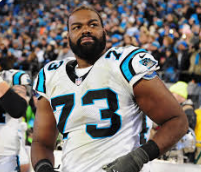“Should you always do what others tell you to do?” That was a question that Michael Oher asks in his essay in the film ‘Blind Side’ as he reflects on the matters raised in Alfred Lord Tennyson’s poem ‘The Charge of The Light Brigade’. It follows from his comment that “you’re not supposed to question adults, or your coach or your teacher, because they make the rules”. As the poem says, “Theirs not to make reply, Theirs not to reason why, Theirs but to do and die: Into the valley of Death Rode the six hundred.” Six hundred soldiers rode into the valley armed with swords against heavy artillery mounted on all sides, all because of a misinterpreted order from a senior officer.
And here was the nub of the matter that was being asked: is courage always good? As Oher writes, “I mean any fool can have courage. But honour, that’s the real reason for you either do something or you don’t. It’s who you are and maybe who you want to be. If you die trying for something important, then you have both honour and courage, and that’s pretty good. I think that’s what the writer was saying, that you should hope for courage and try for honour. And maybe even pray that the people telling you what to do have some, too.”
This was Michael Oher who played in the blind side position on his team’s football team, protecting the all-important, play-making quarterback, listening to his coach’s instructions and fulfilling them, no matter what. How much has this fact ever been raised that, as a coach, we have our children’s lives in our hands? Our children assume we know best. Our children will go into battle for us, no matter what, intrinsically aware that “Theirs not to make reply, Theirs not to reason why”. Is there any honour in that? We do well though to ask ourselves further questions in this regard.
Firstly, are we making our children do things without them knowing why they are doing them? Are we just expecting them to do whatever we say? Do we explain everything to them, including any inherent dangers in the moves or actions that are required? Secondly, do we require of our players unrealistic challenges? Do we put them in dangerous situations on the sports field? Do we ask of them things that are beyond their age suitability? What if our pride as a coach makes us put our youngsters into a situation that is too great for them? And thirdly, do we make it clear exactly what instructions are being given, with their safety of paramount importance? Do we show any honour?
Oher declares that we should “Hope for courage and try for honour” – is that enough? Is that what we want of our children? Maybe we as coaches need more courage to show greater honour to our youngsters to not require of them that which we might demand from adults or professionals. They are children, not adults or soldiers – they are growing, developing, maturing, learning, playing.
Is honour the real reason we are asking them to do things, not the honour of winning trophies but rather the honour of developing values? Do we have the courage to do that? As CS Lewis wrote in ‘The Screwtape Letters’, “Courage is not simply one of the virtues but the form of every virtue at the testing point, which means at the point of highest reality.” But courage is not to be blind. If anything, perhaps, we as coaches, or as parents of sporting children, are the blind side figure on our team; we are there to protect our children in their play so that they are free to allow their talents the freedom to perform to the maximum. Have we the courage to be that? Or are we wanting to take the role of the quarterback ourselves, dictating the moves, calling the shots, issuing the orders? We need to have the courage to step back and to honour the children. The only charge we may face is that of leading our children down a perilous valley.
Like army commanders, we as coaches may also try to demand unquestioning obedience from our children. We must be careful. It is not good enough for us to “maybe even pray that the people telling you what to do have some” courage and honour; we must ensure they do, for the sake of our children. Their lives are affected deeply by what we tell them. Such honour is indeed who we are – or at least it is what our children expect us to be. As the poem states, “All the world wonder’d” – we do indeed wonder. Honour the children. Honour the courage they may be required to show and have the courage to honour the values. Honour the ‘lighties’ brigade! That is our charge!




